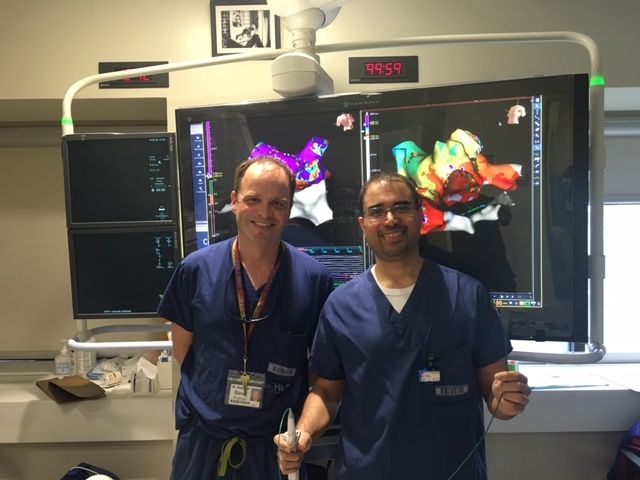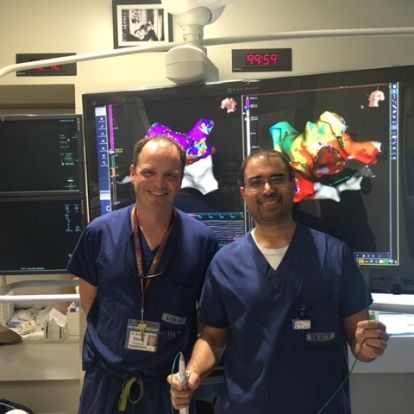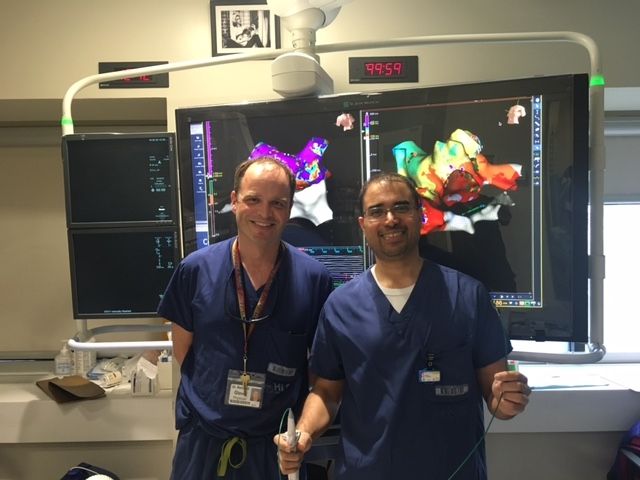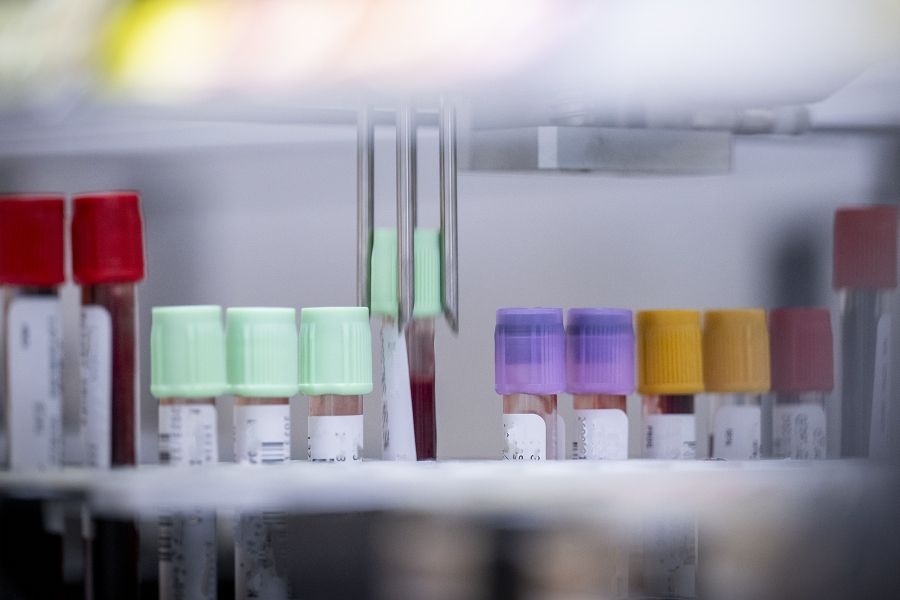
A brand-new cardiac mapping tool for helping cardiologists more effectively address the most common form of heart arrhythmia is being used for the first time in Canada today at Kingston Health Sciences Centre.
The tiny, sensor-enabled device, called the Advisor™ HD Grid Mapping Catheter, is inserted into the heart, where it captures and analyses the complex electrical signals that can cause irregular heartbeat. It provides the cardiologist with a highly detailed picture of the problem areas where these signals originate, leading to faster and more successful cardiac procedures.
“There is huge potential for this catheter,” says Dr. Benedict Glover, chief of the heart rhythm service and KGHRI clinician-scientist who performed the milestone procedure on a patient at KHSC’s Kingston General Hospital site. “Its novel design means it can capture both the direction and speed of signals in much greater detail than current technology. It gives us a better understanding of the electrical properties of certain arrhythmias such as atrial fibrillation. We’re very lucky to be the first to use it.”
The tool, developed by Abbott, will be rolled out at other Canadian centres this week over the coming weeks.
It also promises a longer-term benefit to research into arrhythmia, which is not fully understood and can be difficult to treat. Dr. Glover, who is also Associate Professor of Cardiology at Queen’s University, has recruited co-investigators across Canada for a multi-centre study, led by KHSC, using this catheter to compare different types of ablation therapy used for managing atrial fibrillation. He will also use it in his preclinical research lab to verify its recordings in an atrial fibrillation model, with an aim of quantifying the differences between normal and non-normal heart tissue.
And Dr. Damian Redfearn, a KGHRI clinician scientist, Professor of Medicine at Queen’s and an arrhythmia specialist who oversaw the development of KHSC’s complex ablation program, will be using the catheter to examine ventricular tachycardia, or rapid heartbeat.
This is the second time KHSC’s electrophysiology group has taken the lead in implementing new technology for arrhythmia surgery. In 2017 Dr. Glover was the first in North America to use an advanced mapping suite of technologies for cardiac ablation surgery. This latest tool enhances the capabilities of that sophisticated platform.
Contact:
John Pereira
Strategic Communications Advisor (Media Relations)
613. 549. 6666 x. 6875
pereiraj@kgh.kari.net
Gallery


Dr. Benedict Glover (left), chief of the heart rhythm service, and Dr. Nasser Al Hammad, Electrophysiology Fellow at KHSC, with the new mapping tool.



